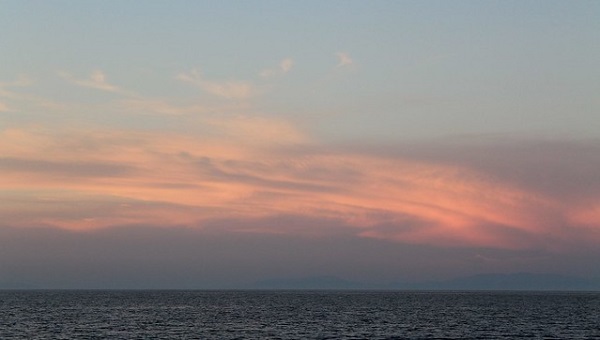Amid rescues by a ferry and the Spanish coast guard, one NGO rescue vessel is still stranded at sea. Two were allowed to disembark in Italy but fear heavy fines and persecution for breaching decrees passed by outgoing interior minister Matteo Salvini. However, new government coalition partner in Italy is pushing for less hostile migration policies.
A ferry of the company Corsica Linea rescued 18 migrants on its way from Algiers to Marseille. The group had spent several days at sea on their way to Europe and reportedly ran out of gas. They were disembarked in the port of Alcudia, on the Spanish island of Mallorca. The Spanish coast guard rescued 180 refugees in the Mediterranean on Sunday, 75 people in the straight of Gibraltar and over 100 in the Alboran Sea between Spain and Morocco. Most of them were brought to the Spanish city of Malaga.
The German rescue ship Eleonore, operated by the NGO Mission Lifeline, docked at the port of Pozallo, Sicily, in defiance of a ban from Italian authorities, which have now seized the ship. The Eleonore had been at sea for eight days, amid deteriorating humanitarian conditions for the over 100 people it had saved in the Mediterranean. The captain had declared the state of emergency after the deck was flooded by a storm. Captain Claus Reisch, who had been on trial in Malta in June, and the first officer of the ship were detained by Italian authorities upon their arrival but released later. Portugal, Ireland, Luxemburg, France and Germany agreed to take in those rescued.
After granting it permission to dock at the port of Lampedusa, Italian authorities also seized the rescue vessel Mare Jonio. The operating NGO Mediterranea reports that the Italian coastguard agreed to let the 31 migrants left on the vessel disembark for health reasons but notified the captain of the seizure and a 300,000 euro fine for violating Salvini’s Security Degree Bis. Over 50 “vulnerable” people had already been evacuated from the vessel in previous days.
Mediterranea commented: “Mediterranea Saving Humans has saved 237 lives in 2019. Our ship has become a symbol for the ‘other’ Italy, for the part of the country that is not afraid, for those who won’t be fooled and who managed, despite everything, to keep an open heart and soul, remembering that it is not by denying the value of every single life that you will obtain more rights for all.”
The rescue vessel Alan Kurdi, operated by the German NGO Sea-Eye, is still stranded at sea between Malta and Italy. The ship rescued thirteen people on Saturday, 31 August, including eight minors. Salvini had banned the ship from entering Italian waters. In a message to the Prime Minister of Malta, Joseph Muscat, the Alan Kurdi’s Head of mission complained that Maltese rescue coordination centre first decided to take responsibility and rejected it several hours later without clear reason. On 2 September, the crew commemorated the fourth anniversary of the drowning of the three-year old Kurdish refugee Alan Kurdi, whose images sparked outrage across Europe and who gave the ship its name.
Outgoing Interior Minister Matteo Salvini announced that the NGOs would “pay dearly for the violation”. Meanwhile, Democratic Party (PD) leader Nicola Zingaretti, who just entered a government coalition with the 5Star movement, told the old and new Prime Minister Giuseppe Conte that a “radical” change was needed from the last government’s closed ports policy. Salvini has been replaced by Luciana Lamorgese, a veteran of the interior ministry, who recently has been in charge of planning refugee reception centres and is known for promoting integration events and policies.
Later this month, the EU plans a meeting in Malta to discuss more permanent disembarkation and relocation arrangements among Member States willing to take in those rescued on a regular basis. At the end of September, the mandate of EUNAVFOR MED Operation Sophia is up for renewal.
Until September, Missing Migrants recorded 911 deaths of people trying to cross the Mediterranean in 2019.
For further information:
- ECRE, Deaths and Standoffs on the Med Reinforce Calls for State-led SAR, August 2019
- ECRE, Mediterranean: Deaths, Rescues and Political Manoeuvres Continue, June 2019
- ECRE, Last Breath of Operation Sophia Should Push Coalition of the Willing, March 2019
- ECRE, A Contingency Plan for Disembarkation and Relocation, January 2019
Photo: (CC) Patrick Nouhailler, June 2013
This article appeared in the ECRE Weekly Bulletin . You can subscribe to the Weekly Bulletin here.

